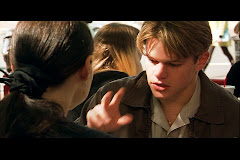I’ve been thinking a lot about prayer and meditation lately. Interfacing with The Divine, with God, or at least my experience of God. Now, in order to do that, I have to deal with a lot of abstract and previously defined concepts (or at least defined previously by others, or maybe even defined in other ways by others). Take for example the experience of God. I need to use that terminology to distinguish between how I become aware of God’s presence in my life, as differentiated with what others have identified as God-like characteristics (ranging from anthropomorphic God – you know, bearded and robed and sitting on high like some sky father – to conceptual referents like omniscient, omnipotent, and the omni-lists of catechism). I also need to be wary of confusing the God of my experience with the true experience of God and getting present to how else that might manifest in each unfolding now of my mortal existence. And that’s just for starters!
So I start with an assumption of God – that God exists and is, like life itself just “is.” And I recognize that for some, that is a leap of faith – “How do you know God is?” That one at least is easy for me: because I look for God in everything, I see God in everything. The same logic is true for the atheists: because they doubt God’s existence, they are looking – in essence for the absence of God – that is their perception. But for me, there is God; present in through and around every living thing. But I stop there because right behind that statement follows a whole raft of self-defined experiences I have had of God’s presence. I am wary of ascribing what I experienced as the expression of God-ness to being what God is, because to do so would immediately begin to limit The Divine though and by those definitions. They are just my experiences of God’s presence to me. So I think it must be true of others, that how we experience God becomes what God is. Therefore, the God of our understanding is a uniquely defined and individual experience.
Perhaps in organized church religions, God may be described by the masses in similar ways creating a “majority view” of God-ness. But weren’t they told what they were looking for in the first place? Isn’t it true that we always see what we expect to see? It’s like what I call the “new car syndrome.” The day before buying my new midnight blue Saab 9-5, I was not terribly aware of how many others there were on the road. But that purchase shaped my seeing such that the experience was almost as if that same day hundreds of other Bostonians went out and bought midnight blue Saab 9-5’s – there were suddenly so many of them. So likewise, if we are told to look for God as manifest in bread and wine, or the smiles of children, or as the Virgin of Guadalupe, or whatever, that will be what we see. But that is not simply the power of suggestion. Rather it is the opening of eyes to what is already present, but to yet another select set of manifestations, as opposed to the complete, total and incomprehensible range of God’s infinite possibility.
So meditating on God for me is not looking for the predefined but rather trying to be present to what wants to be seen this time. Surprise me! I am waiting and open to what you would have me see. Open like this, the experience of God washes over me and opens my seeing to some new (and sometimes renewed) awareness. That hasn’t changed much in recent years – that sitting and opening to the next experience of how God presents “I am-ness” to me. But what has evolved is prayer – my communing and attempting to open the other channel of communication with The Divine.
I remember all of the different classifications of prayer I learned in my childhood: prayers of request, prayers of and for forgiveness, supplication, contrition, and so on. But those were to a God of otherness for me; a great God of the sky, who could and would grant wishes, or wash me to be “whiter than snow.” But what becomes of that type of prayer when God is infinitely incomprehensible? How do I commune? In fact, if I start from an assumption that God is in everything, knows everything and completes everything, then why (if at all) do I need to inform “him” of my needs, wants and wishes?
I don’t.
And suddenly prayer shifts from “out there” to “in here.” Prayer becomes speaking out loud that thought path to alignment with The Divine purpose already at work, and already manifest even before I become aware of it (like the ubiquitous Saabs I had not noticed. As I sit in prayer, I mentally and verbally begin to align my thoughts to Divine intention. And as I do that, the language of my prayer shifts from my laundry list of needs, wants and fears to seeking the humility to become an instrument of God’s work in my world.
It isn’t easy. I want a God who will fix it for me. But, like I always say, I am on a journey here, not looking for the end point, just on the path.
Subscribe to:
Post Comments (Atom)
.jpg)



1 comment:
nothing we haven't talked about before, but I hadn't read this one. Well done!
and come visit me if you like: http://aeditimi.livejournal.com
Post a Comment